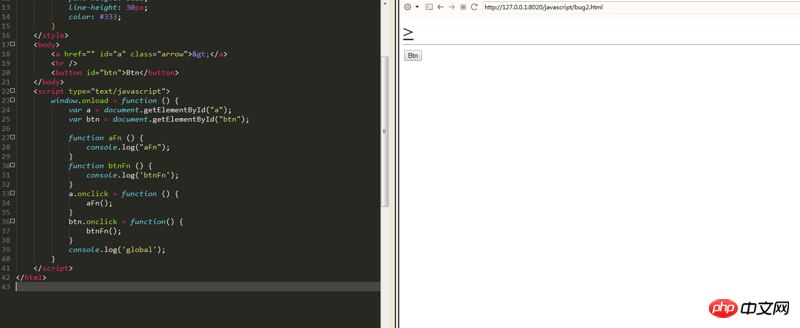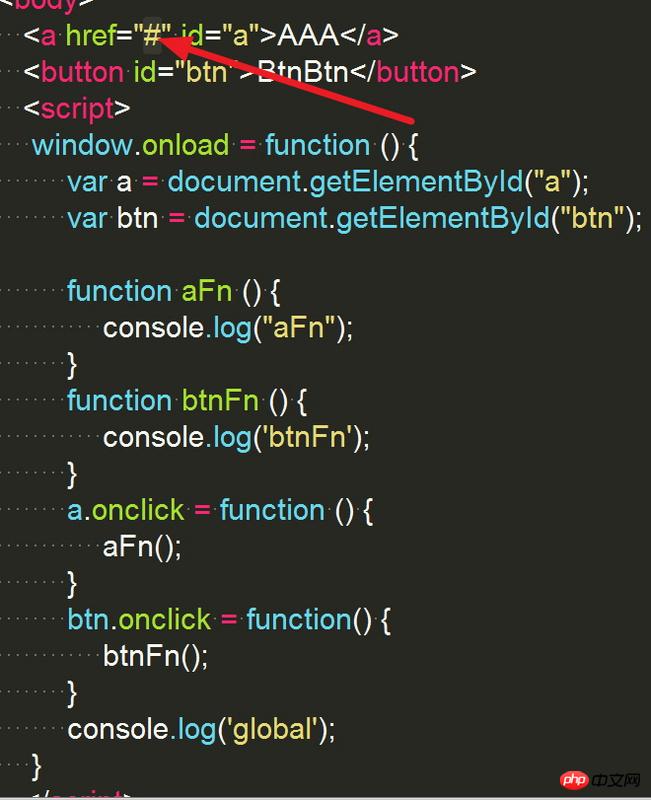window.onload = function () {
var a = document.getElementById("a");
var btn = document.getElementById("btn");
function aFn () {
console.log("aFn");
}
function btnFn () {
console.log('btnFn');
}
a.onclick = function () {
aFn();
}
btn.onclick = function() {
btnFn();
}
console.log('global');
}
console.log('global'), then click a to draw the point element, as shown in the figure: 
button element: first run the code, output console.log('global'), and then click btn, as shown in the figure: 
overall:
click event is executed differently for the two elements. The click event on the a element will execute the code outside the function once. Why is this? ! Someone just said that it is normal to use Chrome in his environment. I changed the console to alert, and it is still the same. I also use chrome.
But on IE, this is not the case. After running, a global alert will pop up. After clicking the a tag, the function will pop up first, and then the page will jump directly. There will be no situation like in chrome. What's going on! (Editor: HBuilder)
PS: When I was trying to write a carousel image example, I used the a element as an arrow button, which directly caused my image to be unable to switch 55555 (equivalent to and execution when clicking a Once the code in the global scope...)
Hahaha, it’s really an interesting question. I found out after reading it for a while.
It’s because your a tag does not have the href attribute set. Clicking it will refresh the page.
Equivalent to: log global -> Click log a -> ; Refreshed log global again
It is normal if the second global does not exist. You can set href="#" in the a tag and see.
Also, please make the fonts in the screenshots bigger next time...I can’t see clearly due to my bad eyesight.

Write event.preventDefault();
in the a tag event binding function